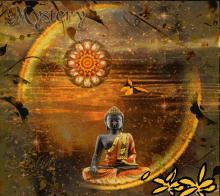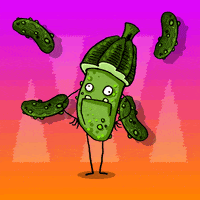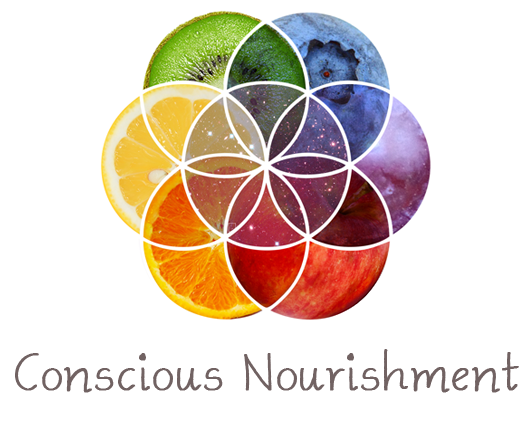Posted by: site admin @ 5:57 am
𝓛𝓔𝓢𝓢𝓞𝓝 4139 Mon 1 Nov 2021
Today to save Democracy Freedom, Liberty, Equality and Fraternity all
fraud EVMs must and should be replaced by BALLOT PAPERS.


Grow Broccoli
 Bell Pepper
Bell Pepper  Cucumber
Cucumber  Carrots
Carrots  Beans in pots.
Beans in pots.
 Sujata fed Buddha to overcome hunger
Sujata fed Buddha to overcome hunger
 Ashoka planted fruit bearing trees all over his Mauryan Empire.
Ashoka planted fruit bearing trees all over his Mauryan Empire.
 Mayawati wants to establish that Mauryan Empire.
Mayawati wants to establish that Mauryan Empire.

3. Dr B.R.Ambedkar thundered “Main Bharat Baudhmay karunga.” (I will make this country Buddhist)
All Aboriginal Awakened Societies Thunder ” Hum Prapanch Prabuddha
Prapanchmay karunge.” We will make the whole world Prabuddha Prapanch Universe.
fed Buddha,Ashoka planted fruit bearing trees all over his
empire.Mayawati wants to establish Samrat Ashoka’s rule who can still
bounce back
Buddhist principles on Democracy
Democracy in buddhism
1.
Lecturer-: Ven. Polgolle Kusaladhamma Ven. B Dhammarama SIBA-BABL 14-13
4th Semester Sri Lanka International Buddhist Academy Buddhist Social
& Political Philosophy
2. CONTENT
Introduction
What is Democracy
Buddhist Sanga and Democracy
Buddhist Approaches to Democracy
Cakkavatti Kingship
Conclusion
References
3. INTRODUCTION
“Bahujanahitāya…
This Dhamma for the good of the many, for the happiness of the many,
and out of compassion for the world.
There is an inseparable
affinity between Buddhism and Democracy. The Buddha’s teaching
definitely encourages democratic ideas and institutions. This is shown
within the community of the Buddhist monk. All disciples in the Buddhist
community have the equal rights to speech, act, and think without any
religious authority and also, respect the human dignity as well as
humanity. Those are the main principles of Democracy. He made the Sanga,
the community of monk, it is an absolutely democratic institution. Even
the modern idea of voting proxy is found in the Buddha’s code of
discipline. And also, the life of the Buddha is a remarkable record of a
fully developed social consciousness.
4. WHAT IS DEMOCRACY?
The
word democracy is derived from the Greek word Dēmos = the people Kratos
= power or rule Democracy is the government of the by the for the
People
5. BUDDHIST SANGA AND DEMOCRACY
The term ‘Sanga’ definitely indicates a kind of political organization. - J.P. Sharma
Sangha is a system of government formed by the Bhikkhus for the
Bhikkhus and of the Bhikkhus - G. De Caratha Bhikkhave janapada
cārikan bahujana hitāya… sukhāya… - Mahāvaggapāli
Agatānāgata catuddisa sanga (The sanga of the four quarters)
System of punishment
The court system
Kappiya kuti (all Sangika property or provisions belonging to the whole Sanga was stored)
6. BUDDHIST APPROACHES TO DEMOCRACY •
Mahasammatha
King – Aggaṅṅa Sutta • Seven conditions of welfare – Maha Parinibbāna
Sutta • Dasa rājadharma - Cakkavatti sīhanāda Sutta • Brahmavihāra •
Equality • Justice • Amity
7. CAKKAVATTI KINGSHIP Ten Royal virtues…….
Dāna - Be liberal & avoid selfishness
Sīla - Maintain a high moral character
Pariccāga - Be prepared to sacrifice own pleasure for others
Ājjava - Be honest & maintain absolute integrity
Majjava - Be kind & gentle Tapa - Lead a simple life for the
subjects to emulate Akkodha - Be free from hatred of any kind
Avihinsā - Develop the non-violence
Khantī - Practice patience Avirodhatā - Respect public opinions to promote peace & harmony
8. CONCLUSION
There
is a very affinity between Buddhism and Democracy. The Buddha appeared
on account of democracy at a time when autocracy was prevalent in India.
Most of the states were feudal, being under a king as in the case of
the Buddha’s own clan, the Sakyans. The path which the Buddha and his
disciples had shown us has not been forgotten. King Ashoka and Mahatma
Gandhi followed the same path and strength of the nation was raised.
Even though Buddhist principles and democracy have very close
relationship, the doctrine preached by the Buddha is not based on
political philosophy. Sometimes the Buddha is said to be a social
reformer and he condemned the cast system, recognized the equality of
people. However, Buddhism is a 100% democratic religion with the freedom
of speech, act, and think. There is no any religious commandment or law
in Buddhism to control the people.
9. REFERENCES
Primary
Sources • Mahavagga Pali, Translated by Nanamoli Bhikkhu. • Ven.
Bhikkhu Bodhi (1998), Book of the Discipline, Buddhist Publication
Society, Sangaraja Mawatha, Kandy. • Digha Nikaya, Buddha Jayanthi
Tripitaka, Nadimala, Colombo. Secondary Sources • Ven. Dhammarathana T
(2006), The Buddha and his vision for the Modern World, Badullagammana
Sri Sumanasara Nayake Abhinandana Shastriya Snagahaya. • Dr. Saddatissa
Maha Thera T (2008), Buddhist Ethics, Allen & Unwin Ltd. Dictionary •
Oxford Advanced Learner’s Dictionary. Sinhala Sources • Mahavagga Pali
in Vinaya Pitakaya, Buddha Jayanthi Tripitaka, Nadimala, Colombo
Grams at $62.00 which plays a role in generating energy in the human
body available ‘for the price of a coffee a day’ a Stunning anti-ageing
breakthrough could see humans live to 150
years and regenerate organ.New process has been
found by Harvard Professor David Sinclair and researchers from the
University of New South Wales, involving cell reprogramming.
to the University of Singapore survey/review based on 131 countries.
From June 18, world will be 100% free and happy from December 8th. Their
predictions about Italy and Spain fit exactly.
5. Maker of COVID Tests Says Pandemic is Biggest Hoax Ever
Perpetrated It is like a blind man searching for a black cat in a dark
room which is not there.
WORLD WILL BE FREE FROM HOAX - STRENGTHENING THE TRUST FOR BEST OF HEALTH -SINGAPORE UNIVERSITY SURVEY

After Bath Practice Patanjali Yogic Meditation From 04:00 AM to 05:00 AM at
𝙆𝙪𝙨𝙝𝙞𝙣𝙖𝙧𝙖 𝙉𝙄𝘽𝘽Ā𝙉𝘼 𝘽𝙃𝙐𝙈𝙄 𝙋𝙖𝙜𝙤𝙙𝙖
18𝙛𝙩 𝘿𝙞𝙖. 𝙖 3𝘿 360 𝙙𝙚𝙜𝙧𝙚𝙚 𝙘𝙞𝙧𝙘𝙪𝙡𝙖𝙧 𝙋𝙖𝙜𝙤𝙙𝙖 𝙖𝙩
𝙒𝙝𝙞𝙩𝙚 𝙃𝙤𝙢𝙚,
668 5𝙩𝙝 𝘼 𝙈𝙖𝙞𝙣 𝙍𝙤𝙖𝙙,
8𝙩𝙝 𝘾𝙧𝙤𝙨𝙨, 𝙃𝘼𝙇 𝙄𝙄𝙄 𝙎𝙩𝙖𝙜𝙚,
𝙋𝙪𝙣𝙞𝙮𝙖 𝘽𝙃𝙐𝙈𝙄 𝘽𝙚𝙣𝙜𝙖𝙡𝙪𝙧𝙪,
𝙈𝙖𝙜𝙖𝙙𝙝𝙞 𝙆𝙖𝙧𝙣𝙖𝙩𝙖𝙠𝙖,
𝙋𝙧𝙖𝙗𝙪𝙙𝙙𝙝𝙖 𝘽𝙝𝙖𝙧𝙖𝙩 𝙄𝙣𝙩𝙚𝙧𝙣𝙖𝙩𝙞𝙤𝙣𝙖𝙡

𝙗𝙪𝙙𝙙𝙝𝙖𝙨𝙖𝙞𝙙2𝙪𝙨@𝙜𝙢𝙖𝙞𝙡.𝙘𝙤𝙢
𝙟𝙘𝙨4𝙚𝙫𝙚𝙧@𝙤𝙪𝙩𝙡𝙤𝙤𝙠.𝙘𝙤𝙢
𝙟𝙘𝙝𝙖𝙣𝙙𝙧𝙖𝙨𝙚𝙠𝙝𝙖𝙧𝙖𝙣@𝙮𝙖𝙝𝙤𝙤.𝙘𝙤𝙢
080-25203792
9449260443
9449835875
Spread the Words of Buddha from
𝙝𝙩𝙩𝙥://𝙨𝙖𝙧𝙫𝙖𝙟𝙖𝙣.𝙖𝙢𝙗𝙚𝙙𝙠𝙖𝙧.𝙤𝙧𝙜, WhatApp, Telegram,Facebook, Twitter, more than 5000 Emails.
Practicing Mindful Swimming at Dolphin Aquatics at Halasuru from 05:30 AM to 07:00 AM
 Vegan
Vegan  White Home
White Home 
 Bell Peppers
Bell Peppers Pepino
Pepino  cenoria
cenoria  feixón en potas
feixón en potasseis esferas de contacto, Bhikkhus, que están ben controlados, ben
gardados, ben protexidos, ben restrinxidos, traen o benestar. Que seis?
ollo, oído, o nariz, a lingua, o corpo como unha esfera de contacto,
Bhikkhus, que está ben controlado, ben protexido, ben protexido, ben
restrinxido, trae benestar.
Holdings LLC (on behalf of Meditative Mind - Meditative Mind -
Meditative Mind); SourceAudio Holdings (music publishing), and 1 Music
Rights Societies
Kalama Sutra o Sutta, es un sutra budista.En este Buda pasa por el
pueblo Kesaputta y sus habitantes, los kalamas le piden consejo.Acerca
de los gurus o m…
 Vegan
Vegan  White Home
White Home 
 Bell Peppers
Bell Peppers Cucumber
Cucumber  Carrots
Carrots  Beans in pots
Beans in pots six spheres of contact, bhikkhus, being well controlled, well guarded,
well protected, well restrained, bring well-being. Which six?
eye, ear, nose, tongue, body as a sphere of contact, bhikkhus, being
well controlled, well guarded, well protected, well restrained, brings
well-being.
 Vegan
Vegan  თეთრი სახლი
თეთრი სახლი 
 Bell Peppers
Bell Peppers კიტრი
კიტრი  სტაფილო
სტაფილო  ლობიო ქოთნები
ლობიო ქოთნებიექვსი სფეროების კონტაქტი, Bhikkhus, მიმდინარეობს კარგად კონტროლირებადი,
კარგად დაცული, კარგად დაცული, კარგად თავშეკავებული, მოუტანს
კეთილდღეობა. რომელი ექვსი?
ყურის, ცხვირის, ენა, სხეული, როგორც კონტაქტის სფერო, Bhikkhus, კარგად
კონტროლირებადი, კარგად დაცული, კარგად დაცული, კარგად თავშეკავებული,
მოაქვს კეთილდღეობა.
გაუტამა, ბუდა – საკვანძო ფიგურაა ბუდიზმში. მისი ცხოვრება, ბრძნული
გამონათქვამები, მის მიმდევრებთან საუბრები და სამონასტრო აღთქმები გახდა
ბუდიზმის წმინდა ტექსტის ტრიპიტაკას სრული კრებულის საფუძველი.
sechs Kontaktkugeln, Bhikkhus, gut kontrolliert, gut bewacht, gut
geschützt, gut zurückhaltend, Wohlbefinden bringen. Welche sechs?
Auge, das Ohr, die Nase, die Zunge, der Körper als Kontaktkugel,
Bhikkhus, gut kontrolliert, gut bewacht, gut geschützt, gut
zurückhaltend, das Wohlbefinden bringt.
 vegan
vegan  λευκό σπίτι
λευκό σπίτι 
 Bell Peppers
Bell Peppers αγγούρι
αγγούρι  καρότα
καρότα  φασόλια σε γλάστρες
φασόλια σε γλάστρεςοι έξι σφαίρες επαφής, Bhikkhus, που είναι καλά ελεγχόμενοι, καλά
φυλασσόμενοι, καλά προστατευμένοι, καλά συγκρατημένοι, φέρνουν ευημερία.
Που έξι;
μάτι, το αυτί, τη μύτη, τη γλώσσα, το σώμα ως σφαίρα επαφής, Bhikkhus,
που είναι καλά ελεγχόμενες, καλά φυλασσόμενοι, καλά προστατευμένοι, καλά
συγκρατημένοι, φέρνει ευημερία.
આ છ ક્ષેત્રો, ભીખસ, સારી રીતે નિયંત્રિત, સારી રીતે સાવચેત, સારી રીતે
સુરક્ષિત, સારી રીતે નિયંત્રિત, સારી રીતે લાવે છે. કયા છ?
કાન, નાક, જીભ, શરીરના સંપર્કના ક્ષેત્રમાં, ભીખસ, સારી રીતે નિયંત્રિત,
સારી રીતે સાવચેત, સારી રીતે સુરક્ષિત, સારી રીતે નિયંત્રિત, સારી રીતે
રહેલા, સુખાકારી લાવે છે.
the occasion of the United Nations Climate Change Conference (COP26)
His Holiness the Dalai Lama speaks on the need to tackle climate change
as the future of our planet is in our hands.
the occasion of the United Nations Climate Change Conference (COP26)
His Holiness the Dalai Lama speaks on the need to tackle climate change
as the future…
zòrèy, nen, lang, kò a kòm yon esfè nan kontak, bhikkhus, yo te byen
kontwole, byen veye, byen pwoteje, byen restrenn, pote byennèt.
chanting the OM Mani Padme Hum Mantra with chakra healing sounds from
Tibetan Singing Bowls for 3 hours long.On the meaning of: OM MANI PADME
HUM T…
kunne, hanci, jiki a matsayin wani yanki na lamba, Bhikkhus, ana
sarrafa shi sosai, an kiyaye shi sosai, an kiyaye shi da kyau.
maka, e ka maka, ka a me ke kino, keʻano o ka hoʻopiliʻana, paleʻia,
mālama maikaʻi, e lawe maikaʻiʻia, e lawe maikaʻiʻia, e lawe maikaʻiʻia.
Tổng Hợp Chia Sẻ Các Bài Pháp, Các Tài Liệu Dhamma, Trợ Duyên Ai Đó Hữu
Duyên Được Biết Đến Dhamma Mà Bậc Giác Ngộ Đã Chỉ Dạy Và Được Các Đại
Trưởng Lão Gìn Giữ Lưu Truyền, Biết Đến Phương Pháp Thiền Anapana và
Vipassana, Được Vững Vàng Trên Con Đường Giải Thoát Khổ, Được An Lạc
Thực Sự, Hoà Hợp Thực Sự, Hạnh Phúc Thực Sự!
Không Đại Diện Cho Bất Kỳ Tổ Chức Tôn Giáo Hay Trung Tâm Thiền Nào.
Chúng Tôi Chỉ Tổng Hợp & Chia Sẻ Thông Tin Dhamma. Chúng Tôi Không
Tổ Chức Thiền, Không Dạy Thiền, Không Kinh Doanh Thương Mại, Không Kêu
Gọi Hùn Phước.
Khả Năng Có Hạn, Nên Dù Đã Cố Gắng Nhưng Bộ Sưu Tập Này Không Tránh
Khỏi Có Những Chỗ Thiếu Sót, Thậm Chí Có Những Chỗ Sai, Mong Các Bậc
Thiện Trí Chân Thành Chỉ Bảo, Góp Ý.
Các Kênh Này, Nguyện Ai Đó Hữu Duyên Sẽ Nhận Được Dhamma & Tự Tìm
Được Con Đường Tu Tập Phù Hợp Cho Mình, Được Lợi Lạc Trong Dhamma.
ý: Để Học Dhamma & Học Phương Pháp Thiền Anapana & Thiền
Vipassana, Quý Vị Nên Tìm Hiểu Và Đăng Ký Tham Dự Khoá Thiền Tại Các
Trung Tâm Thiền Uy Tín Hoặc Dưới Sự Chỉ Dẫn Từ Các Vị Thầy, Các Bậc
Thiện Trí, Các Thiền Sư. Nguyện Quý Vị Được Hạnh Phúc, Được An Lạc, Được
Giải Thoát!
הפאנל: סנדיה בר-קמה, לילה קמחי, פרופ’ יעקב רז, פניננדו בהיקהו ודניאל
סטמבלר. מנחים: אילן לוטנברג ואבי פאר. צילום: משה בראל. השיחה התקיימה
בסמינר הקיבוצים ביום 7.2.2014.
בודהיזם בישראל מציג מגוון פעילויות המבוססות על עקרונות הבודהיזם
שמתקיימות בישראל, מבחר מאמרים בעברית בנושאים בודהיסטיים שונים, תרגומים
של כתבים ודרשות (סוטרות)…
 Vegan
Vegan  Dawb Tsev
Dawb Tsev 
 Tswb kua txob peppers
Tswb kua txob peppers  carrots
carrots  taum hauv cov lauj kaub
taum hauv cov lauj kaub Vegan
Vegan  Dawb Tsev
Dawb Tsev 
 Tswb kua txob peppers
Tswb kua txob peppers  carrots
carrots  taum hauv cov lauj kaub
taum hauv cov lauj kaub Vegan
Vegan  hvítt heimili
hvítt heimili 
 papriku agúrka
papriku agúrka  gulrætur
gulrætur  baunir í pottum
baunir í pottumsex sviðum snertingar, Bhikkhus, sem eru vel stjórnað, vel varðveitt,
vel varið, vel spennt, koma vel með vellíðan. Hvaða sex?
 vegan
vegan  White Home
White Home 
 bell na-ede ede kukumba
bell na-ede ede kukumba  carrots
carrots  beans na akụwa
beans na akụwana-ahụ maka ịkpọtụrụ isii ndị a, Bhikkhus, na-achịkwa nke ọma, chekwaa
ya nke ọma, na-egbochi ya nke ọma, na-egbochi ya nke ọma. Kedu isii?
bidang kontak ini, Bhikkhus, dikendalikan dengan baik, dijaga dengan
baik, dilindungi dengan baik, terkendali dengan baik, membawa
kesejahteraan. Enam mana?
telinga, hidung, lidah, tubuh sebagai bidang kontak, bhikkhu,
dikendalikan dengan baik, dijaga dengan baik, dilindungi dengan baik,
terkendali dengan baik, membawa kesejahteraan.
 Vegan
Vegan  Bán Baile
Bán Baile 
 clog peppers
clog peppers  cúcamar
cúcamar  cairéid
cairéid  pónairí i bpotaí
pónairí i bpotaína sé réimse teagmhála seo, Bhikkhus, á rialú go maith, cosanta go
maith, go maith cosanta, go maith srianta, dea-bhail. Cé acu seisear?
an tsúil, an chluas, an tsrón, an teanga, an corp mar réimse teagmhála,
Bhikkhus, a bheith á rialú go maith, cosanta go maith, cosanta go
maith, go maith srianta, folláine.
sei sfere di contatto, Bhikkhus, essendo ben controllate, ben
custodite, ben protette, ben contenute, portano il benessere. Quali sei?
l’orecchio, il naso, la lingua, il corpo come una sfera di contatto,
Bhikkhus, essendo ben controllati, ben custoditi, ben protetti, ben
trattenuti, portano benessere.
si evince da un commento fatto da S.S il Dalai Lama riguardo la
comprensione del buddhismo in una cultura diversa da quella tibetana o
indiana: “I testi di lamrim (stadi del sentiero al risveglio)
presuppongono che chi li studia sia già un praticante con fede in Buddha
e nei suoi insegnamenti. Principalmente chi studia i testi di lamrim in
tutte le tradizioni tibetane è qualcuno che già ha una qualche
conoscenza di rinascita e karma, dei Tre Gioielli, i cognitori validi e i
loro oggetti (l’epistemologia buddhista) e così via”.
a causa delle differenze culturali o al modo in cui è strutturata
oggigiorno la società, spesso abbiamo domande e dubbi che richiedono
spiegazioni dettagliate che non si trovano nei testi buddhisti classici.
è di grande utilità, per chi è di un’altra cultura ed è interessato al
buddhismo avere delle spiegazioni introduttive in modo tale da essere
preparato in modo corretto.
offrire a tutti la possibilità di accedere agli insegnamenti di Dharma
trasmessi dal venerabile Lama Paljin Tulku Rinpoche e dagli altri
maestri e docenti nostri ospiti, il Centro Mandala è impegnato da anni
in una vasta opera per la loro condivisione online.
from Anger』(英文)など著書多数。
enem kontak, Bhikkhus, sing dikontrol kanthi apik, uga dijaga kanthi
becik, dilindhungi kanthi becik, ngusir, nggawa kesejahteraan. Apa enem?
kuping, ilat, lidah, layon kontak, bhikkhus, sing dikontrol kanthi
apik, dijaga kanthi becik, dilindhungi uga dilindhungi, nggawa
kesejahteraan.
Indonesia” created with “Gamelan Jawa” featured Suling (Indonesian
traditional flute). This music designed for Relaxation, Meditation,
Healing, Stress Relief and boost Positive Energy. This instrumental
track especially arranged to describe how beautiful Indonesia through
sound and music.
ancient musical principles are used to compose and improvise our new
pieces that continue the mystical and spiritual traditions; Gamelan tone
as a means to induce an atmosphere of calm and tranquility. The beats
in gamelan used as cues to inhalation and exhalation to induce a
meditative state.
is the traditional ensemble music of the Javanese, Sundanese, and
Balinese. Gamelan is an integral part of Indonesian culture, gamelan
often accompanies rituals. In Javanese mythology, the gamelan was
created by Sang Hyang Guru in Saka era 167 (c. AD 230), the god who
ruled as king of all Java from a palace on the Maendra mountain. He
needed a signal to summon the gods and thus invented the gong. For more
complex messages, he invented two other gongs, thus forming the original
gamelan set.
ಈ ಆರು ಗೋಳಗಳು, ಭಿಕ್ಖಸ್, ಚೆನ್ನಾಗಿ ನಿಯಂತ್ರಿಸಲ್ಪಡುತ್ತವೆ, ಚೆನ್ನಾಗಿ
ಕಾವಲಿನಲ್ಲಿ, ಚೆನ್ನಾಗಿ ರಕ್ಷಿಸಲಾಗಿದೆ, ಚೆನ್ನಾಗಿ ಸಂರಕ್ಷಿಸಲ್ಪಟ್ಟವು,
ಯೋಗಕ್ಷೇಮವನ್ನು ತರುತ್ತವೆ. ಇದು ಆರು?
ಕಿವಿ, ಮೂಗು, ನಾಲಿಗೆ, ದೇಹವು ಸಂಪರ್ಕದ ಕ್ಷೇತ್ರವಾಗಿ, ಭಿಕ್ಖಸ್, ಚೆನ್ನಾಗಿ
ನಿಯಂತ್ರಿಸಲ್ಪಡುತ್ತದೆ, ಚೆನ್ನಾಗಿ ಕಾವಲಿನಲ್ಲಿ, ಚೆನ್ನಾಗಿ ರಕ್ಷಿಸಲ್ಪಟ್ಟಿದೆ,
ಚೆನ್ನಾಗಿ ಸಂರಕ್ಷಿಸಲಾಗಿದೆ, ಯೋಗಕ್ಷೇಮವನ್ನು ತರುತ್ತದೆ.
KANNADA DHAMMA DISCOURSE – 8th Aug 2021 given by Venerable Bhikkhu
Ananda at Mahabodhi Buddha Vihara, Maha Bodhi Society, Gandhinagar,
Bengaluru, India || (MN:118) Buddha’s roadmap to the entire course of
meditation practice, using the vehicle of breath meditation.
KANNADA DHAMMA DISCOURSE – 8th Aug 2021 given by Venerable Bhikkhu
Ananda at Mahabodhi Buddha Vihara, Maha Bodhi Society, Gandhinagar,
Bengaluru, Ind…













![Beautiful Indonesia - Gamelan Javanese Music, Meditation & Relaxing Music [Gamelan Vibes]](https://external.fblr15-1.fna.fbcdn.net/safe_image.php?d=AQHqF39epKuet0yX&w=500&h=261&url=https%3A%2F%2Fi.ytimg.com%2Fvi%2FaZFECPabyvg%2Fmaxresdefault.jpg&cfs=1&ext=jpg&_nc_oe=6ef4f&_nc_sid=06c271&ccb=3-5&_nc_hash=AQE8GkRcvXksA6L1)
